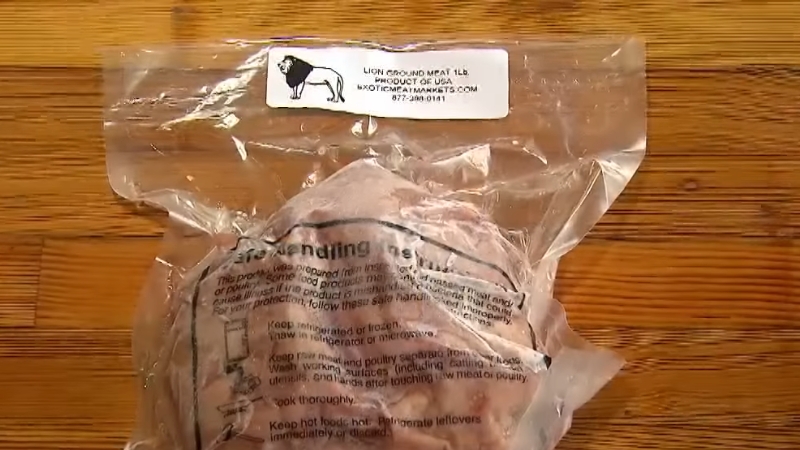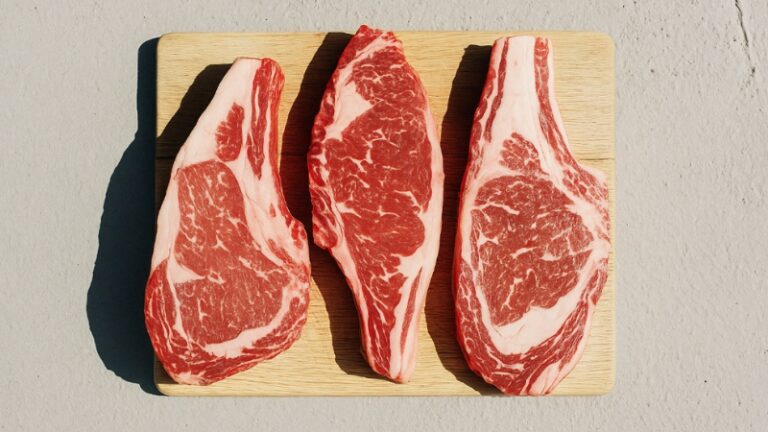Yes, humans can eat lion meat, and it is considered safe to consume when sourced and prepared correctly.
Lion meat is part of a broader category known as bushmeat—wild animal meat that has been hunted or farmed and prepared for human consumption.
Historically, people in Africa and parts of India have consumed lion meat, often ceremonially or when honoring respected guests.
In these regions, lion meat is not a daily staple, but it does appear on rare occasions.
Today, lion meat remains legal in several countries, where it’s occasionally found in specialty restaurants and exotic meat markets.
Is Lion Meat Legal in the United States?
View this post on Instagram
Yes. Lion meat is legal to buy, sell, and eat in the United States, as long as it is sourced and processed according to regulations.
Legal Facts
Regulation Area
Details
Federal Protection
Lions are listed as “vulnerable,” not “endangered,” under the U.S. Endangered Species Act.
FDA Classification
Lion meat is recognized as consumable wild game meat by the FDA.
Import Rules
Imports are regulated; meat must comply with the Lacey Act and international wildlife trade laws.
U.S. Farming
Lion meat sold in the U.S. is typically from captive-bred lions raised on private farms, not hunted from the wild.
In 2013, the state of Illinois attempted to ban lion meat, sparking national headlines and surprising many Americans who didn’t even realize lion meat was already legal, according to National Geographic.
Where Does Lion Meat Come From?

Most lion meat sold in the U.S. is from licensed exotic meat farms, often based in the U.S. or imported from Africa or other countries with lion farming operations.
According to exotic meat suppliers:
How Does Lion Meat Taste?
@ladshub Have you ever tried #lionmeat or anything this #exotic 🦁🍖 #fypシ #fypシ゚viral🖤tiktok #fypシ゚viral🖤 #meatlover #lionking #kebab #foodtiktok #burgertok #restaurant #supplements #alternative #gameanimals #freshfood #fastfood #abruknanahi #abcxyz ♬ original sound – Ladshub
Taste is subjective, but lion meat has been described by those who’ve tried it as:
Common Descriptions
Compared To
How It’s Similar
Beef
Texture and savory tone
Chicken
Milder flavor
Pork
Fat content and chewiness
Bison
Lean and firm
Many chefs mix lion meat with other meats (like beef or pork) in burgers or tacos to soften its texture and make it more palatable.
How Is Lion Meat Cooked?
Cooking Method
Description
Grilled (Steak)
Lion meat is cut into steak portions and grilled over high heat, similar to beef.
Ground (Burger Patties)
Lion meat is ground and shaped into patties, sometimes mixed with other meats.
Slow-Cooked (Stew)
Prepared in a stew to tenderize the meat and enhance its flavor with broth/spices.
Tacos or Sausages
Used as a filling in tacos or encased in sausages, often seasoned heavily.
Skewered (Kebabs)
Cubed lion meat is grilled on skewers, often with vegetables or spices.
Despite its rarity, lion meat is surprisingly versatile in the kitchen. Grilling it as a steak is common, but the meat must be handled carefully due to its low fat content, which can make it dry out quickly.
Ground lion meat is more adaptable and often appears in burgers, usually mixed with beef or pork to balance its lean nature.
For those who prefer a softer texture and richer flavor, slow cooking in stews helps break down tougher fibers, resulting in a more palatable dish. In fusion and exotic cuisine, lion has also been featured in tacos, sausages, and even skewers, showing its flexibility across global cooking styles.
How Much Does Lion Meat Cost?
Purchase Type
Average Price
Notes
Retail (Raw Meat)
$25–$35 per 1/4 pound (approx. $100–$140/lb)
Sold through specialty exotic meat vendors.
Restaurant Dish
$55–$75 per plate
Price varies depending on preparation, ingredients, and rarity.
Lion meat is not your everyday protein. As a luxury exotic item, it commands a high price tag.
If you’re looking to buy raw lion meat from a specialty supplier, expect to pay around $25 to $35 per quarter-pound, making it up to $140 per pound—a price significantly higher than typical cuts of beef or pork.
In restaurants, the cost can rise even further. A lion burger or fillet dish may cost anywhere from $55 to $75 or more, depending on how it’s prepared and the restaurant’s exclusivity.
Ethical and Conservation Concerns
Lion meat is legal—but is it ethical?
Concern
Explanation
Wildlife Conservation
Lions are vulnerable and their population has decreased by over 70% since the 1960s. Only ~20,000 remain in the wild.
Slaughter Methods
Lions are not protected under the Humane Methods of Slaughter Act—no legal requirement to minimize suffering.
Transparency
The lion meat industry is lightly regulated, making it difficult to verify where the meat comes from or how the animals were treated.
Animal Rights
Many argue lions, as apex predators and cultural symbols, deserve special protection, even if they’re farm-raised.
Animal advocacy groups such as Born Free USA and Ethics Sage have publicly opposed lion meat sales, arguing that freedom of choice should not override animal rights.
Lab-Grown Lion Meat: A Future Alternative?

Biotechnology companies are now working on cultivated lion meat—lab-grown protein developed from lion cells. This innovation could make it possible to experience the taste of lion meat without harming animals or ecosystems.
Several Michelin-starred chefs have expressed interest in using lab-grown lion meat as a sustainable alternative in fine dining.
Conclusion
After researching how lion meat is sourced, cooked, priced, and regulated, I understand the appeal for those interested in trying exotic meats. Legally, it is allowed in the U.S. if sourced from licensed farms. It can be cooked like most other meats and is described as having a mild, gamey taste.
Exploring new foods can be exciting for those seeking unique culinary experiences.
However, the ethical concerns are significant. Lions are a vulnerable species, and while farm-raised lion meat is legal, the industry lacks strict oversight. There are also concerns about animal welfare and conservation.
Would I try it? I’m not sure. Legality doesn’t guarantee that something is right. I believe trying lion meat should come with serious consideration about where it came from and what impact it has. For now, I don’t feel comfortable supporting that industry.

